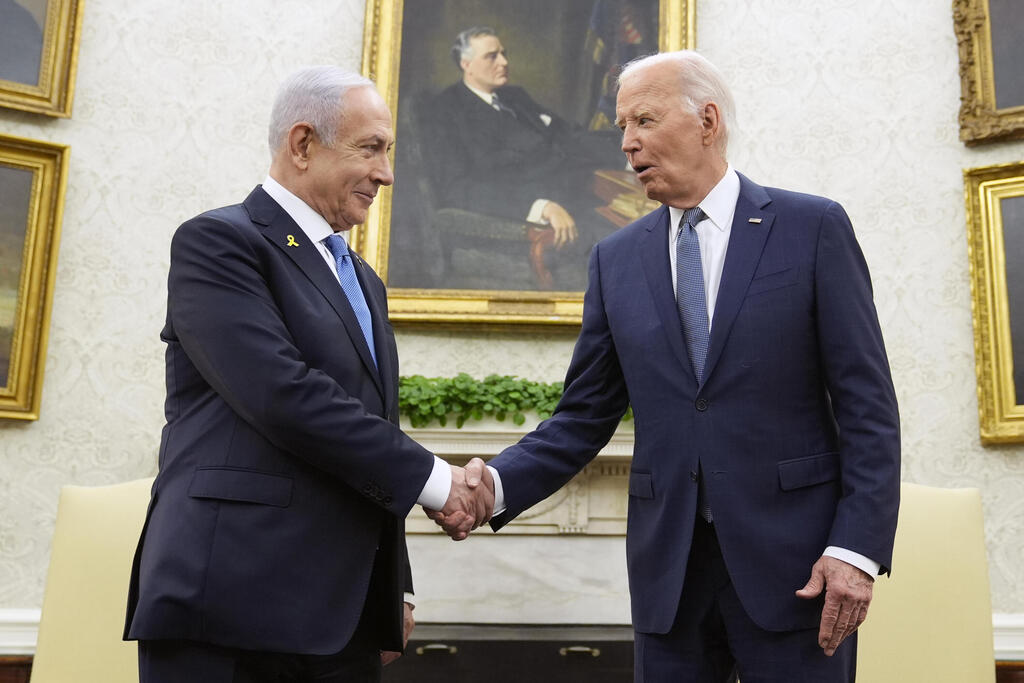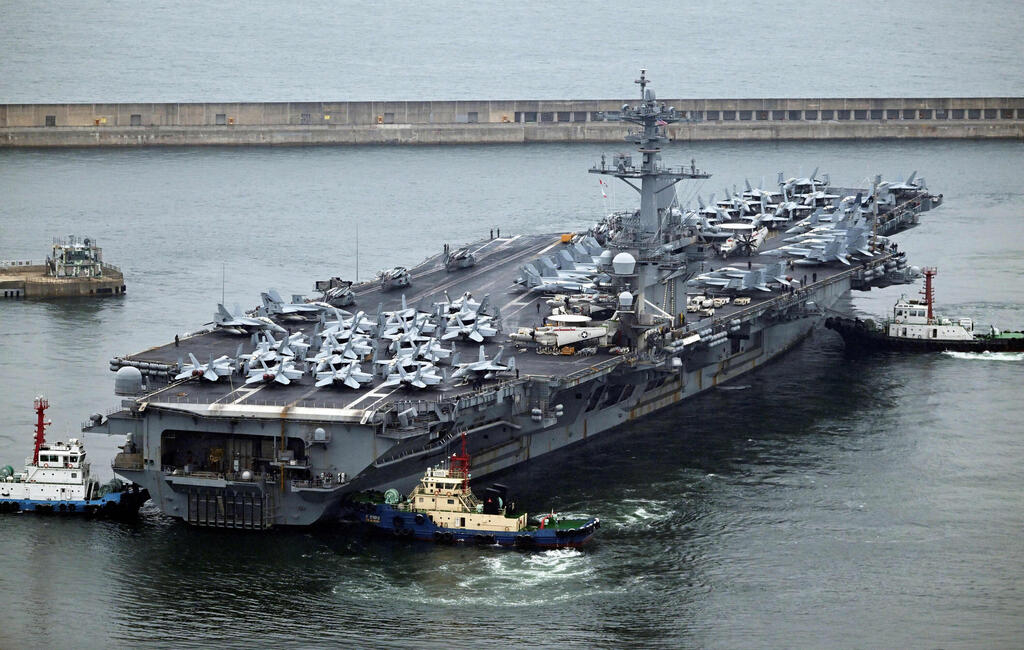Getting your Trinity Audio player ready...
With U.S. President Joe Biden’s recent announcement not to seek re-election, Prime Minister Benjamin Netanyahu is reportedly seizing the opportunity to adopt a more assertive posture against Iran, the Telegraph reported on Saturday, citing a senior Israeli official.
Previously, President Biden had urged Netanyahu to moderate his responses to Iranian provocations, influencing Israel's strategic decisions. “He told him not to respond too harshly to Iran’s attacks. And Iran knew this, which is why they exploited the situation to attack Israel,” the official said, noting that Biden now feels freer to act according to his longstanding support for Israel without the constraints of an upcoming election.
2 View gallery


Prime Minister Benjamin Netanyahu and US President Joe Biden
(Photo: AP /Susan Walsh)
The official described Biden’s withdrawal from the presidential race as a “big game changer” in the Middle East, suggesting that Iran had been leveraging Biden’s campaign concerns to escalate tensions.
Heightened military readiness
Israel is currently bracing for potential Iranian retaliation following the targeted killing of Hamas politburo chief Ismail Haniyeh in Tehran. Measures include bolstering security at critical sites and expanding hospital capacities. Concurrently, the U.S. has enhanced its military assistance to Israel, aiming to bolster defenses against potential missile and drone strikes from Iran and its regional proxies.
Speaking to the Telegraph, Dan Arbell, a scholar-in-residence at the Center for Israeli Studies at American University, expressed skepticism that Biden's status as a "lame duck" president was the primary motivator for Netanyahu’s recent actions, which included targeting a top Hezbollah commander in Beirut. Arbell pointed to evolving public sentiment and the necessity for strategic recalibration as more significant factors driving Israeli military decisions.
“Biden being a lame duck could play a small role, but I don’t think that’s the ultimate consideration,” Arbell remarked, emphasizing that while Biden has intensified support for Israel, he has not given carte blanche for unrestricted military operations. Arbell also suggested that any U.S. military aid would consider its impact on Vice President Kamala Harris’s political standing.
Another Israeli official indicated that Biden’s goal is to broker a ceasefire as a legacy of his presidency, though recent communications between Biden and Netanyahu were reportedly tense, reflecting differing views on how to manage the ongoing conflict.
Meanwhile, the U.S. has deployed at least 12 warships to the Middle East, including the USS Theodore Roosevelt aircraft carrier, amphibious assault teams and over 4,000 Marines and sailors, in response to escalating tensions in the region following the assassinations of Hamas leader Ismail Haniyeh in Tehran and Hezbollah military chief Fuad Shukr, the Washington Post reported on Thursday, citing a Pentagon official.
According to the report, destroyers have been positioned in both the Persian Gulf and the Eastern Mediterranean. The U.S. has redirected its warships from the Red Sea, where it combats Houthi missile and drone attacks in Yemen to protect commercial ships and support Israel.




